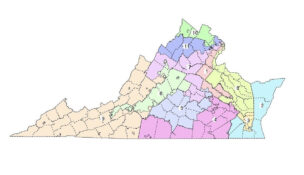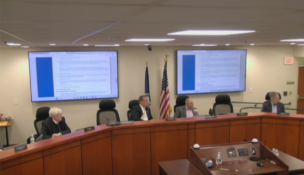House committee unanimously kills ‘Netflix Tax’
Lia Tabackman //January 30, 2018//
A bill nicknamed the “Netflix tax” was unanimously defeated Monday in the House Finance Committee, ending the possibility of taxing streaming services in Virginia in 2019.
Introduced by Del. Vivian Watts, D-Fairfax, HB 1051 would have applied the state’s 5 percent communications sales and use tax not just to Netflix but to all online streaming services – among them Hulu, Spotify and HBO Go – that have skyrocketed in popularity, especially among millennials.
While the current communications tax applies to cable TV, satellite radio, landlines, cell phones and even pagers, streaming services are not included.
Watts said her bill was needed to modernize the state’s communications tax. “Obviously, the way we have continued to communicate has changed,” she said.
Watts told the committee that her bill would apply equal taxes to all forms of communication. “The best we can hope for is a fair tax structure,” she said.
According to the bill’s impact statement, the tax would generate nearly $8 million in revenue for the state – potentially allowing Virginia to become less dependent on other forms of taxes, like those collected through income and real estate levies.
The bill is not the first of its kind: Pennsylvania and Florida have passed laws that tax internet transactions and digital streaming services. But the tax has faced opposition from taxpayers, streaming services and industry trade groups.
The Finance Committee voted 22-0 against the bill. Watts voted against her own legislation, acknowledging that while the measure was not ready to be passed, she wanted to spur a larger conversation about Virginia’s tax structure.
Republicans said they were opposed taxing the heavily used services.
“Let’s be real clear in what we’re talking about here,” said Del. Tim Hugo, R-Fairfax, chairman of the House Republican Caucus. “This is a Netflix tax. This is a Hulu tax. If you’re under 30, this is a tax on how you get your information, how you watch your TV, how you consume everything every day.”
Representatives from T-Mobile, Verizon and Sling TV attended the meeting and spoke against the bill, while the Virginia Municipal League and the Virginia Association of Counties were in favor.
Neal Menkes of the Municipal League commented that he had “yet to hear a pager go off,” echoing Watts’ sentiments about the need to modernize tax law around a quickly changing communications landscape.
i


















